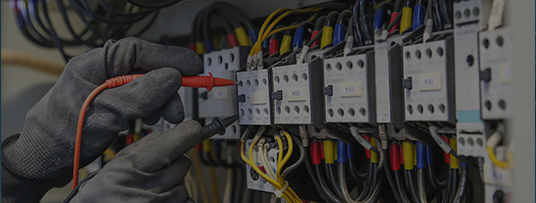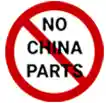Programmable Logic Controllers (PLC) stand as a cornerstone of modern control systems, serving to streamline complex processes across various industries. In this blog, we will delve into the purpose of a PLC, exploring its fundamental functions, various types, and notable applications. By the end, you will have a comprehensive understanding of why PLCs are so integral to contemporary industrial operations.
Designed to replace traditional relay-based control systems, PLCs are essentially a digital computer used to automate machinery and processes in manufacturing, energy management, and other industrial applications with a higher level of flexibility and precision. The primary function of PLCs is to act as an intermediary between the operator and machine. They execute control tasks by receiving input signals from sensors and other devices, process these inputs based on pre-programmed instructions, and then send output signals to control actuators, motors, and other equipment. For instance, in a manufacturing plant, a PLC can regulate the operation of conveyor belts, manage the sequence of assembly operations, and ensure that machinery operates within safe parameters. Additionally, they can collect data on machine performance and process variables, allowing for detailed analysis and optimization.
PLCs come in various forms to suit different needs, with fixed PLCs being one of the most common types. Characterized by their built-in setup, fixed PLCs have a predetermined number of input and output (I/O) points that cannot be altered after purchase. This design makes them compact and cost-effective, as the integrated components streamline manufacturing and reduce the overall system cost. Fixed PLCs are ideal for simple control tasks where the number of input and output points remains constant, like a single piece of machinery or for managing basic process controls in environments where space and budget are constrained.
In contrast, modular PLCs provide significant flexibility and scalability. These systems are composed of a central processing unit (CPU) and a series of separate input and output modules, which can be individually added or removed. This modular architecture allows users to tailor it as they desire by integrating various types of modules, like digital and analog I/O, communication interfaces, and specialty modules for functions like temperature control or motor management. The option to modify the system as requirements change makes modular PLCs particularly suitable for complex processes where the number of inputs and outputs can vary over time or where additional functionalities might be needed later on. This adaptability ensures that the control system can evolve alongside operational demands, offering long-term value for dynamic industrial environments.
High-density PLC systems represent a specialized category designed to handle large-scale operations that need numerous I/O points while occupying minimal physical space. These systems are engineered with a high density of I/O modules packed into a compact, often modular, form factor. Their ability to process and manage a large volume of data efficiently is achieved through advanced engineering that integrates high-density I/O modules with powerful CPUs and communication interfaces, ensuring robust performance even in compact configurations. As a result, high-density PLC systems are particularly popular for demanding applications in industries such as automotive manufacturing, aerospace, and large-scale energy management, where the control of complex systems and extensive data processing with precision and reliability are required.
The purpose of PLCs extends beyond mere control, as they contribute to enhanced efficiency and safety. PLCs allow users to define and alter control sequences without the need for physical rewiring, making them highly adaptable to changing requirements and complex process control. The ability to reconfigure control logic through software rather than hardware adjustments saves both time and money. Moreover, by automating routine tasks and enabling precise control over industrial operations, PLCs help reduce the potential for human error and downtime. In all, Programmable Logic Controllers are a versatile and near-essential component of modern industrial automation, providing flexible, real-time control and monitoring for various applications.
Industrials Matrix is a one-stop shop for all your programmable logic controller needs, this website being stocked with quality-assured components that trace back to manufacturers you can trust. We carry over 2 billion parts that range in condition from factory-new to obsolete, so take the time to browse our vast selection. Should you come across any item of interest, we invite you to fill out one of our instant RFQ forms with your specifications, and within 15 minutes of reviewing your submission, one of our experts will respond with a custom quote for your consideration. We leverage our global supply chain and industry expertise to offer rapid lead times and competitive pricing on all orders, so do not hesitate to reach out and see how we can serve as your dependable procurement partner.
Posted on August 29, 2024 Griffin Adams Industrial Products

 The only independent
The only independent

 All Orders are Fulfilled in the U.S.A.
All Orders are Fulfilled in the U.S.A. All shipments must comply with U.S.A export laws.
All shipments must comply with U.S.A export laws. No exceptions.
No exceptions.

“We Proudly Support Intrepid Fallen Heroes Fund that serves United States Military Personal experiencing the Invisible Wounds of War : Traumatic Brain Injury (TBI) and Post Traumatic Stress (PTS). Please visit website (www.fallenheroesfund.org) and help in their valiant effort”.
We hope that you will visit us again the next time you need industrial parts and make us your strategic purchasing partner.
Request for Quote